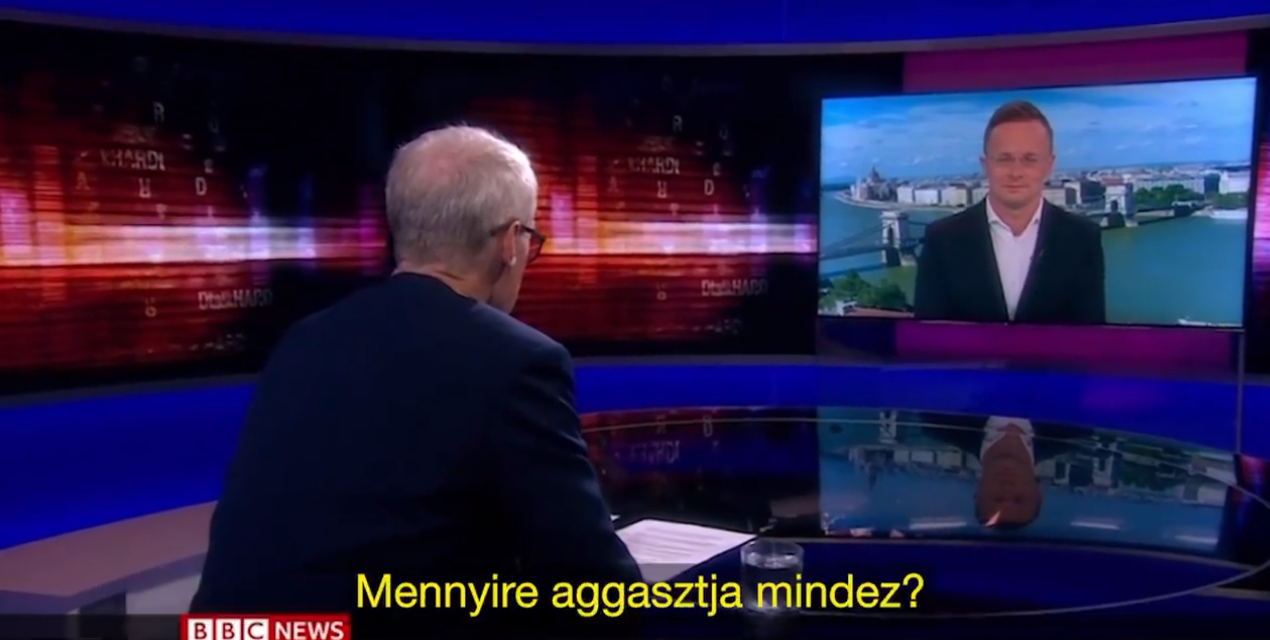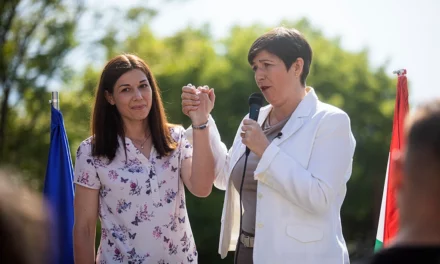There are cases - these days there are more and more of them - when even the most famous representatives of the lackey press, which has served the globalists, declare bankruptcy. The BBC did the same when they tried to send our Foreign Minister to the floor in connection with the Child Protection Act in their show Hard Talk. The result was that he ended up mopping the floor with them.
Anyone who saw the video of the broadcast can have no doubt that the particularly tough reporter Stephen Sackur's knife broke into the fruitless effort. Péter Szijjártó, with his usual elegance and calmness (I don't know where he got it from), beat back attempts to discredit him/us. So far, this is not surprising, since Hungarian politicians have already gotten used to almost without exception being asked for interviews by very objective Western television stations.
These broadcasts have a tone of accountability, accusation, and education, but the members of the government - whether Judit Varga , Katalin Novák or Zoltán Kovács - stand the test of time. with Ferenc Gyurcsány , who explains himself confusedly ( see the CNN interview ).
Of course, the BBC cannot be proud of this new failed attempt, especially since the conversation made it clear that the reporter does not know the law and is trying to misrepresent its content with a bitter effort. He was only dealing with Szijjártó, so his efforts ended in ugly failure.
After that, M1 wanted to present this conversation in its entirety, but as our portal also reported, after a long, one-week reflection on his objectivity and his uncompromising stance on press freedom (that is, the globalist television station, which is devoted and concerned about Hungarian press freedom), did not allow the interview communication. Our portal also reported on this .
Well, this can be understood somehow. Who likes to brag about their failure? Especially not such a very objective, very credible body. However, even from the BBC, the reason for the ban is a surprisingly primitive explanation, since the exchange of television material is a common practice, and the receiving body pays for it. Blocking it doesn't make much sense, because the conversation is available on the Internet, if not elsewhere, certainly the foreign minister's social media page
The great BBC gave the reason for the ban: "at the moment we do not have the means to distribute this one episode internationally".
Nope. Is British television in such trouble? What tools do they not have? They wanted to send it by bottle mail, but the bottle ran out? Or with a homing pigeon, but it flew away? If you are in trouble, just let us know and we will help. Maybe we can send you this "episode one" because we have it.
Hey, British colleagues, not only the horse's leg, but the whole stud is sticking out of the bag . You received an order from globalo-gazdi, and you just took a bath with it.
At the same time, as we noted above, the arrogance that the media of former colonial countries allow themselves towards Hungary is not at all unusual. Mariann Őry writes about this in Magyar Hírlap:
"This was not the first example that the Western mainstream media somehow withheld the position of the Hungarian government. Justice Minister Judit Varga reported on Facebook at the end of June that Politico did not publish its opinion piece on the subject of the Child Protection Act. "I would have given clear and straight, fact-based answers to the sexless and vile lies related to the law protecting children and parents in my writing, but it seems that the European press does not like the truth," he said.
And last spring, the interview with Varga regarding the law on protection against the coronavirus was not included in the Euronews broadcast , but the material with current EP representative Katalin Cseh
It is also fortunate that "over there" the globalist media is independent, unbiased and objective. It's as true as the BBC said…
(Cover image source: Facebook)












